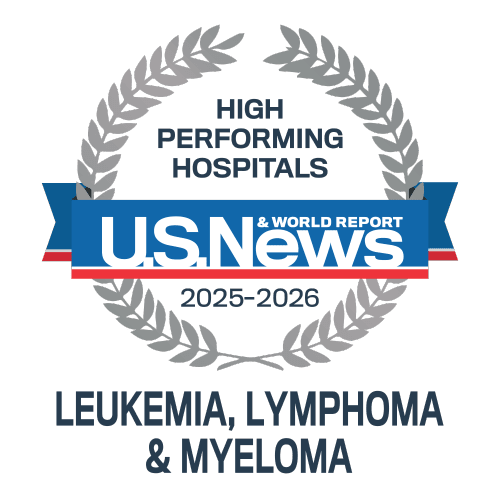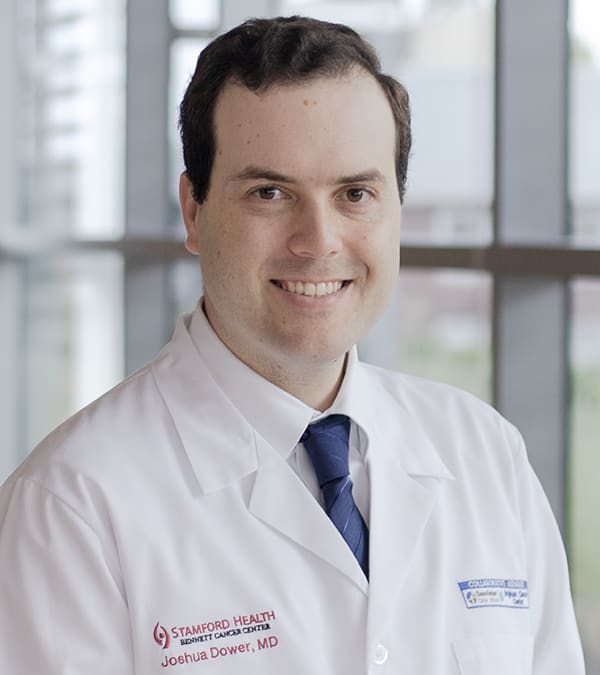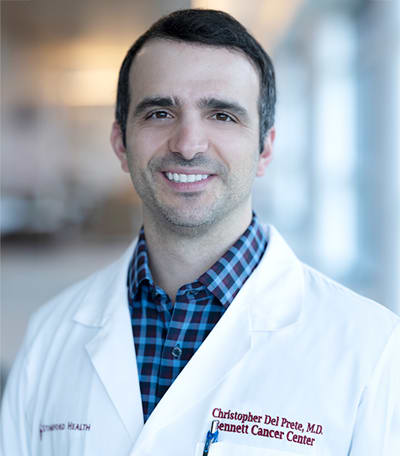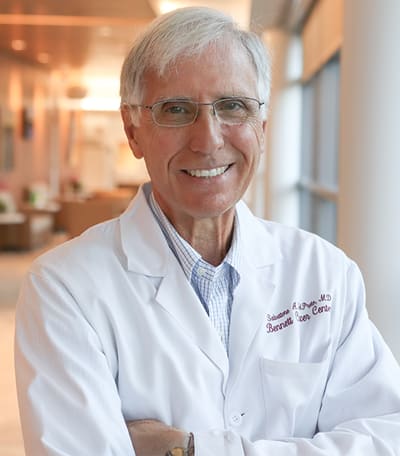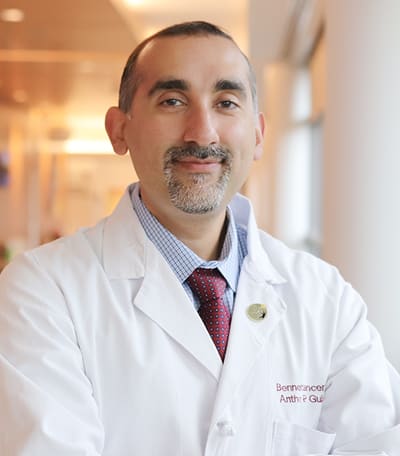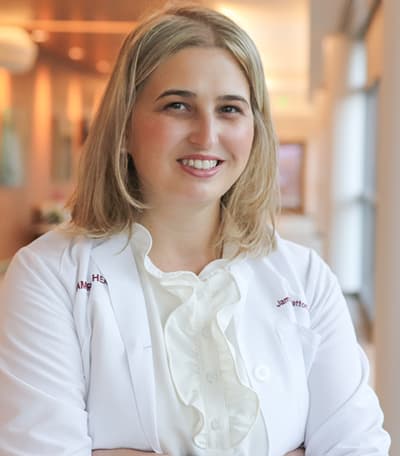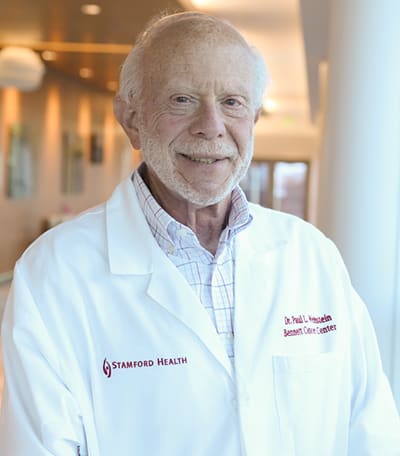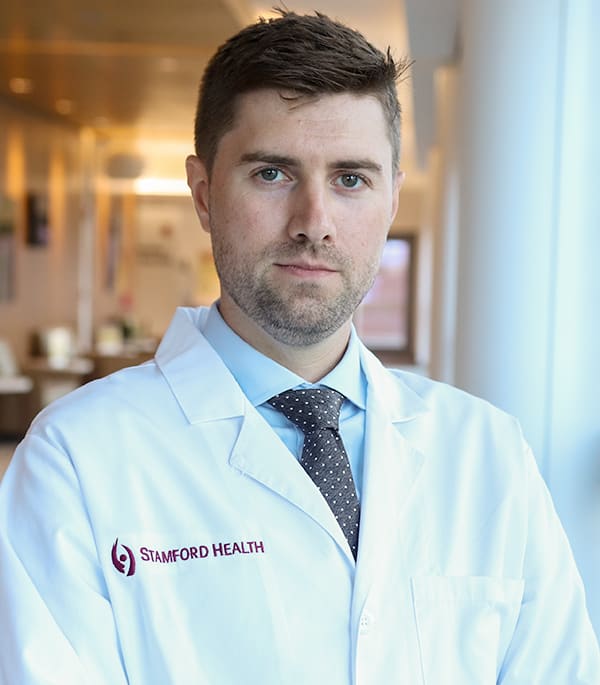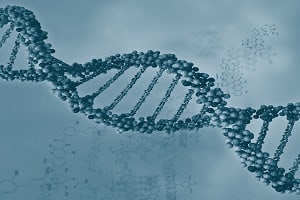We're committed to focusing primarily on diagnosing, managing and treating your blood disorders. The Hematology Division at the Bennett Cancer Center offers a comprehensive range of treatment options for:
- Malignant blood diseases
- Benign hematologic disorders
- Metabolic disorders
- Autoimmune diseases
- Bleeding/clotting disorders
What Is Blood Cancer?
Blood cancer is a general term for malignancies (cancers) in the blood, lymph nodes, or bone marrow that impact production and function of normal blood cells. Depending on the progression of the cancer, doctors usually distinguish between three main types of blood cancer: leukemia, multiple myeloma, and malignant lymphoma, all of which you can learn more about below.
What Are Symptoms Of Blood Cancer?
Different types of blood cancers can lead to different signs and symptoms. Here are symptoms that are common to most blood cancers:
- Feeling tired, weak, dizzy, or lightheaded
- Shortness of breath
- Pale skin
- Bruises
- Bleeding (this could include nosebleeds, bleeding gums, or heavy menstrual bleeding)
What Makes Blood Cancer Treatment At Stamford Health Unique?
To ensure the best care possible for you, our team has trained and worked at the best cancer treatment facilities in the United States. In 2016, the Bennett Cancer Center and Stamford Hospital partnered with the Dana Farber Cancer Institute (DFCI)/Brigham and Women’s Hospital in Boston as a member of the Cancer Care Collaborative. This initiative, in conjunction with the Division’s longstanding membership in the Eastern Cooperative Oncology Group (ECOG), continues to assure that the Hematology Division at the Bennett Cancer Center will be able to provide cutting edge clinical research studies generally available only at academic centers to patients in Fairfield County and Westchester County.
As recognition of this level of expertise, two of our hematologists have won the prestigious Melville Magida award which honors the best Fairfield County physicians under age 40. They are the only two hematologists to have ever been recognized with this award.
Recognized by U.S. News & World Report 2025-2026 as a high performing hospital in leukemia, lymphoma & myeloma care.
What Blood Cancers, Diseases And Disorders Do We Treat?
Our team specializes in many diseases and disorders, from benign to malignant.
-
BENIGN HEMATOLOGY AND AUTOIMMUNE DISEASES
- Low blood counts (cytopenias) including anemia, leukopenia/neutropenia and thrombocytopenia
- Sickle cell disease and sickle variants: When the body produces abnormally shaped blood cells.
- Alpha and beta thalassemia: Types of inherited blood disorders in which there exists less hemoglobin and red blood cells in the body than normal.
- Primary and secondary autoimmune hemolytic anemia, leukopenia/neutropenia, thrombocytopenia
- Red cell enzyme disorders
- Red cell membrane disorders
- Qualitative platelet disorders: When there are not enough platelets in the blood, causing a person to experience increased bleeding.
- Cyclic neutropenia: A rare blood disorder in which there exist repeated episodes of abnormally low levels of neutrophils, or a type of white blood cell.
- HIV-related benign hematology
- Hemolytic uremic syndrome: Predominant in children, this disease includes hemolytic anemia, acute kidney failure, and a low platelet count. This syndrome is caused by E. coli.
- Atypical hemolytic uremic syndrome: A very rare disease categorized by low levels of circulating red blood cells and a low platelet count.
- Thrombotic thrombocytopenia purpura: A rare blood coagulation disorder in which microscopic clots form in the small blood vessels.
- Hypersplenism: The term to describe an overactive spleen.
- Cryoglobulinemia: When the blood contains larger amounts of proteins that become insoluble at certain temperatures.
- Hypogammaglobulinemia: When the immune system cannot make enough antibodies called immunoglobulins. People with hypogammaglobulinemia are more prone to infections.
-
MALIGNANT HEMATOLOGY AND STEM CELL DISORDERS
- Acute and chronic leukemias: Cancer of the blood cells as a result of the rise of the number of white blood cells in the body.
- Non-Hodgkin's lymphomas: Oftentimes called just lymphoma, a cancer that starts in the white blood cells or lymphocytes. B lympthocytes (B cells) and T lymphocytes (T cells) are the two main types of lymphocytes in which Non-Hodgkin's lymphoma can occur.
- Hodgkin's lymphoma: Also called Hodgkin's disease, a cancer that begins in the lymph nodes. There are various types of Hodgkin's lymphoma.
- Primary central nervous system lymphomas: When cancer cells develop in the lymphatic tissue of the brain and/or spinal cord.
- Multiple myeloma: A cancer of the body's plasma cells, an important part of the immune system that helps to fight infection.
- Myelodysplastic disorders: When blood cells that are not fully developed in the bone marrow do not mature, causing the bone marrow to have abnormal cells.
- Mast cell disorders: Also called mast cell activation syndrome, an autoimmune disorder in which mast cells (a type of white blood cell) excessively release chemical mediators, causing negative and debilitating symptoms to the body.
- Aplastic anemia: Also known as bone marrow aplasia, a condition that occurs when the body stops producing sufficient new blood cells.
- Paroxysmal nocturnal hemogloginuria: An uncommon, but rare, disease of the blood in which red blood cells are destroyed and blood clots occur as well as impaired bone marrow function.
- Myeloproliferative disorders: including polycythemia vera, myelofibrosis and essential thrombocythemia
- HIV-related malignancies: Those infected with HIV have a significantly higher risk of certain types of cancers.
- Malignant stem cell disorders
-
Clotting Disorders
- Congential hypercoagulable states
- Acquired hypercoagulable states
- Infertility related to hypercoagulability
- Obstetrical disorders associated with recurrent fetal loss related to hypercoagulability
- Congential hypercoagulable states
-
Bleeding Disorders
- Acquired and inheritable von Willebrand disease.
- Acquired and inheritable factor VIII deficiency (Hemophilia A)
- Acquired and inheritable factor IX deficiency (Hemophilia B)
- Factor XI deficiency (Hemophilia C)
- Miscellaneous acquired and inheritable factor deficiencies
- Disorders of the fibrinolytic system
- Chronic disseminated intravascular coagulation
- Thrombocytopenia
- Hereditary hemorrhagic telangiectasia (Osler Weber Rendu)
- Acquired and inheritable von Willebrand disease.
-
Metabolic Disorders
- Gaucher disease: The lack of an enzyme that breaks down fatty substances called lipids.
- Hereditary hemochromatosis: When the body absorbs and stores excess iron.
- Transfusion-related iron overload: When excess iron from blood transfusions accumulate in the body.


